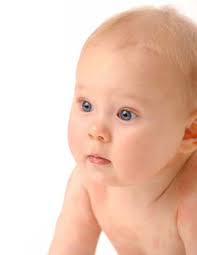Help, my child has eczema!
Eczema, also known as ‘atopic eczema’ or ‘atopic dermatitis’, is a skin allergy/condition causing inflammation and intense irritation. When it occurs in young babies and children it can be really upsetting for whole family.
Eczema symptoms tend to be caused by dry skin. Skin that is affected by eczema gets sore and broken when it is scratched. It can look wet and may bleed. Scratching is hard to avoid since the main distressing symptom of eczema is unbearable itching, but once the skin gets broken and cracked, infections can set in, causing even more discomfort.

Help, my child has eczema!
What Does Atopy/Atopic Mean?
There are many types of eczema and dermatitis:
- Atopic Eczema / Atopic Dermatitis
- Discoid Eczema
- Contact Dermatitis
Atopy, or being atopic, means having a genetic tendency for your immune system to make increased levels of IgE antibodies to certain allergens. An atopic individual is likely to have more than one allergic condition during their lifetime, such as eczema, asthma, hay fever or food allergy.
Can Food Allergies Cause Eczema?
Children are born with the tendency to have eczema, and many things can make their eczema worse. These are known as eczema ‘triggers’. Eczema in children can have various triggers, of which food can be one, especially in babies. However, foods are not the primary cause of eczema.
How can we help at Elan Medical Skin Clinic?
We all understand the pressures that GPs are under. One of the biggest problems is the pressure of TIME. At Elan Medical Skin Clinic in Essex our Dermatology Nurse Consultant, Sue Ibrahim, has over 30 years experience in helping children and their families cope with the day to day struggles of coping with eczema. She can help you identify the trigger factors in your child and thoroughly discuss the treatment options open to you. No, she cannot cure eczema but she can work with your GP to ensure that a management programme is in place and that exacerbations of eczema are dealt with quickly and effectively.
How to help us diagnose an allergy
The first step in managing an allergy is identifying the cause(s) of the problem. Diagnosing allergy can be difficult since the symptoms may be similar to other conditions. If you think your child may be allergic to something and do not know what it is, you should start to keep a record of the symptoms. In particular, the following information may help us make a diagnosis
- Do the flare ups occur at any particular time of the day?
- Does your child only get symptoms at certain times of the year?
- Does your child suffer more at night time or during the day?
- Do the flare ups occur when your child is in the house as well as outside?
- Does exposure to animals bring on the symptoms?
- Do you think that any food or drink brings on the symptoms?
- Do the symptoms occur every time your child comes into contact with the allergen?
- Do the symptoms improve when you are on holiday?
If you are at the end of your tether, and would like a consultation to discus your child’s eczema, our friendly team are here to help. Contact us today!
